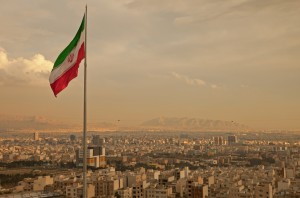Inheritance Tax in Andalusia and ‘Brexit’
Back in February 2016, the Tax Office in Andalusia divulged interesting IHT data: only 7% of all inheritors in this region had had to pay tax following the demise of their loved ones, at a time when maximum allowance per beneficiary was of €175,000.
Of the 7% who had to pay IHT, only 2.1% were beneficiaries classed as next-of-kin of Group I (children -natural and adopted- and other descendants under 21) and Group II (children and other descendants aged 21 and over; parents and other ascendants, and spouses, with the remaining 5% being more distant relatives or beneficiaries with no family ties with the testators.
In 2017, the exemption was increased to €250,000, thus reducing even more the overall impact of this annoying tax.
In 2018, a further tax cut has increased the exemption by €1,000,000 -provided the beneficiary does not have savings or assets of up to the same amount-. This exemption, which applies to residents of Spain but also, any inheritors -foreign or not- who at the time of death of the testator were residents of the European Union or European Economic Area (EEA), means that pretty much nobody will pay IHT in this region, except of course if the inheritor happens to be a resident of the UK and Theresa May sets Britain on course for a hard Brexit (if she has not already done).
For if the UK do not negotiate a separate agreement with the EU to maintain the status quo currently enjoyed all EU/EEA residents, the negative impact in inheritance tax will become particularly visible for thousands of potential inheritors from the UK, for whom the maximum deductible amount will be -on average- €16,000 per inheritor, just as any non-EU citizen.
The negative effects will equally translate to income obtained in Spain, which will be taxed with 24% -as opposed to 19% now- and without the possibility to deduct costs and expenses, and CGT relief when reinvesting in a habitual domicile, which disappears.





 With effect from the 29-09-2013, the Spanish Government
With effect from the 29-09-2013, the Spanish Government  Morocco’s Exchange Control Office has issued a statement warning citizens of this country against buying property in Spain; according to them, you can only buy property in Spain
Morocco’s Exchange Control Office has issued a statement warning citizens of this country against buying property in Spain; according to them, you can only buy property in Spain 
 The discretional nature of the Spanish residency application approval process adds a great deal of uncertainty to potential applicants that wish to relocate to Spain on the basis of a self-employed residency application.
The discretional nature of the Spanish residency application approval process adds a great deal of uncertainty to potential applicants that wish to relocate to Spain on the basis of a self-employed residency application.